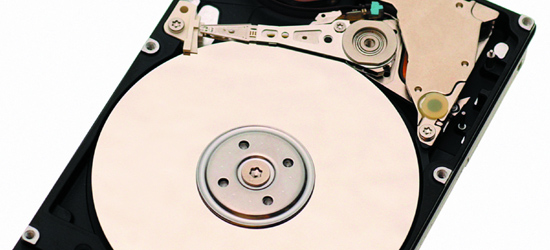There are few things that can ruin your productivity like losing the hard drive on your computer. Here are a few tips that work well for me when it comes to backing up my computer.
- Take some time to imagine the worst case scenario and how you would handle it. For example, what would you do if your laptop were dropped? What would you need to do if it were stolen?
- Make sure you have some type of off-site backup. I put a copy of important files on a DVD and put it in a bank lockbox. I only do this once or twice a year, but it gives me something to go back to, if necessary.
- Use an external hard drive for backup. This is usually a lot faster than backing up to DVDs or CDs. The easier a backup is to do, the more often you’ll do it.
- Create a bootable backup. My primary backup is done by creating a bootable image on an external hard drive. If I were to lose my computer, I could use another computer to boot to the external drive and start working with all my programs and files from my last backup.
- Don’t forget about backing up important software. If you have purchased software over the internet, you may not have any CDs for it. Make sure you could get these back if you lost your drive.
- Automate as much as possible. The best backups happen automatically without any thought on your part.
- Test your backups. I have seen people with very nice automated backup processes in dire straits because they never tested the backup. When I am designing a backup strategy for a client, I’ll usually try to create an automatic backup testing process as well. For the home user, it might be just a matter of testing to make sure you can open the files you’ve backed up every once in a while.
- Don’t trust any media. Hard drives go bad. CDs go bad. Diskettes go bad. Memory sticks go bad. Pretty much anywhere you can store your data has some risk that it will go bad and your data will be lost. You should have your important data in more than one place so you won’t suffer a total lost if you hard drive fails and your backup media fails as well.
- Label your backups. Doing backups is great, but unless you label your media, it will be very difficult to figure out what is stored where. You can easily lose a bunch of time sorting through 100 unlabeled CDs looking for the most recent backup.
Originally published November 13, 2007.

Any software recommendations for doign the daily hard drive backups?
Most commercial software compresses into a proprietary file system so all you see on the backup drive in one big blob of a file. I find this to be very bad.
Backup files should be standard file folder structure so you can browse and confirm the files are really there.
@Mike Nash – Something based on Rsync sounds like what you want. JungleDisk also does what you describe. You might also checkout the backup for OS X method I talked about earlier.
For backing up to an external hard drive or network folder on Windows, I just use plain old xcopy. It works dependably, and is on almost every Win box out there. I set up a scheduled task with a little batch file, and leave my computer on over night.
On *nix based boxes, rsync is a great tool, but does require a little knowledge to get it working just right.
I use Windows and have a very dependable small application called Cobian Backup. It can be setup so it backs up scheduled tasks and after that is done I record those into DVDs and label them with the date and info that is stored in them. I do have to mention that Cobian uses .zip files so they can be easily opened/viewed.
>>Any software recommendations for doign the daily hard drive backups?
Try Backup4all ( http://www.backup4all.com ) as it has an option to store the files being backed up without archiving them (you can easily browse through the files in the destination this way). Of course it has the option to back up using zip compression, and given that’s standard zip you can open the backup even with the built-in Windows zip viewer.
I use a program called SyncBack; I got it for free from the Giveaway of the Day but it’s normally $30. I don’t have an especially sophisticated setup, it just copies a defined list of directories to an external hard drive at daily, weekly, and monthly intervals. There are more advanced settings you can use, such as making encrypted .zip files of your backups.
For my Mac I use CarbonCopy Cloner and have it set to back up the HD once a week and my Home file every other evening.
I have been very happy with crashplan. It is free to backup to another computer, but they also have a paid option to backup to their servers. I have been very happy with it.